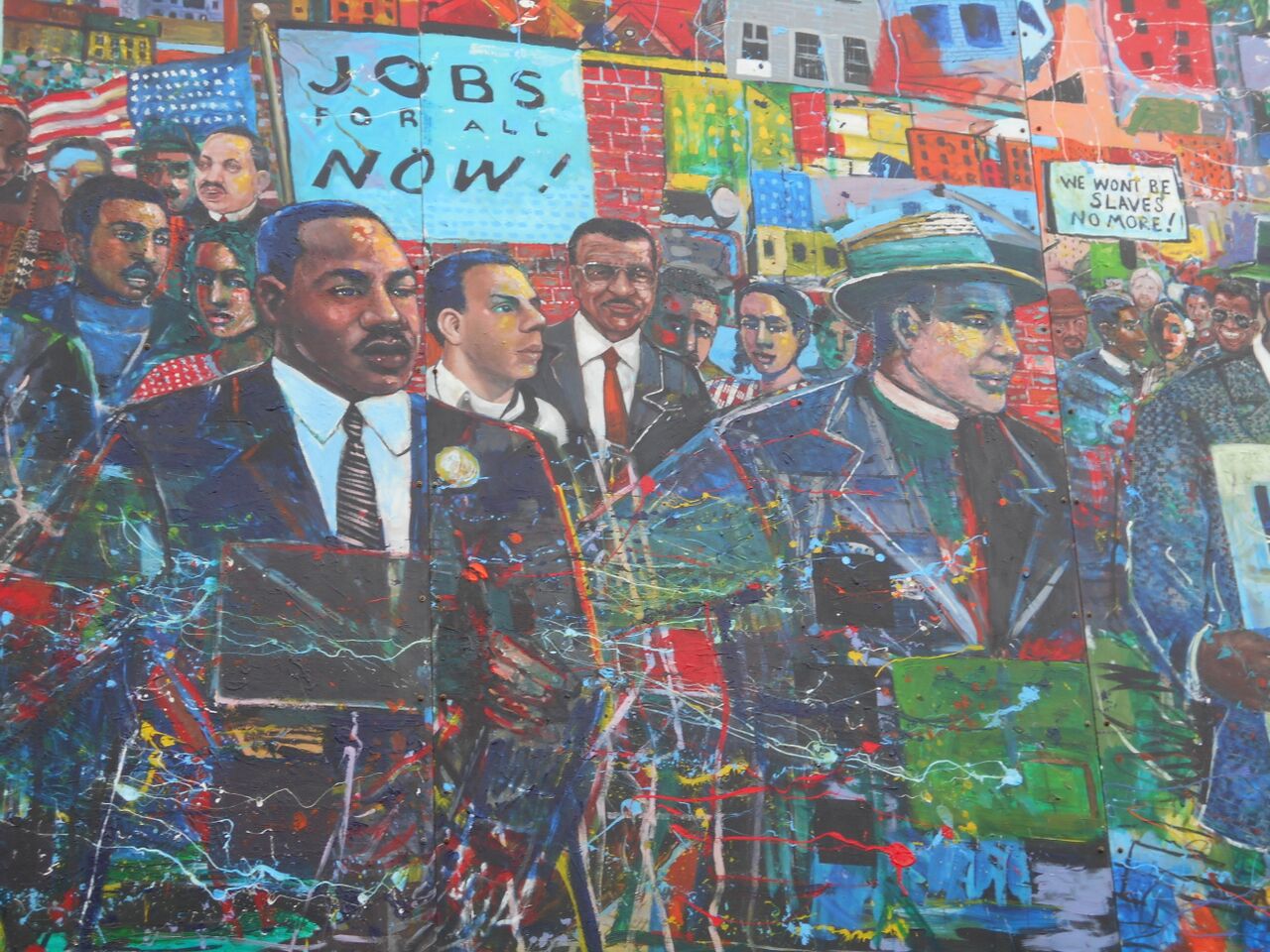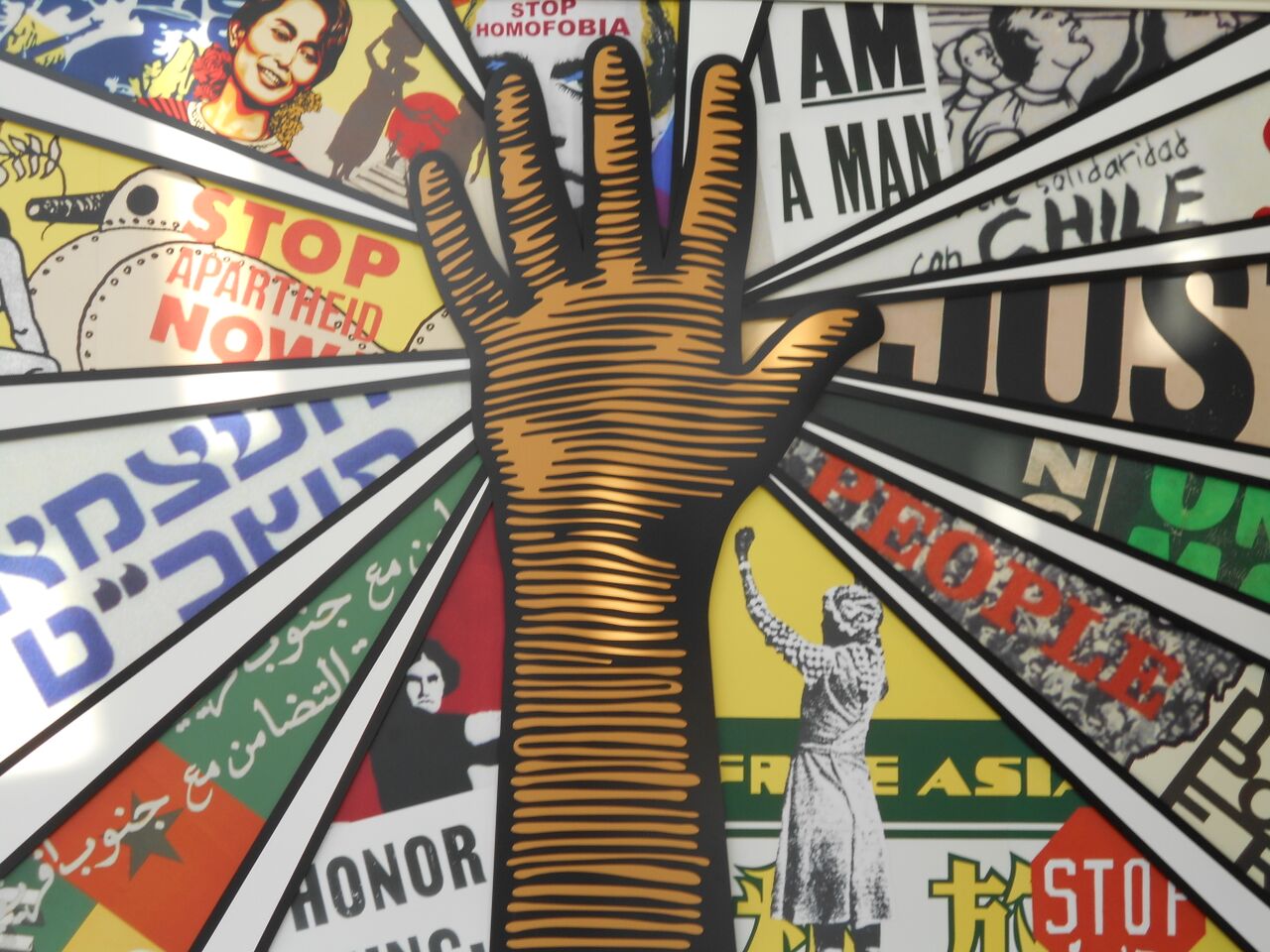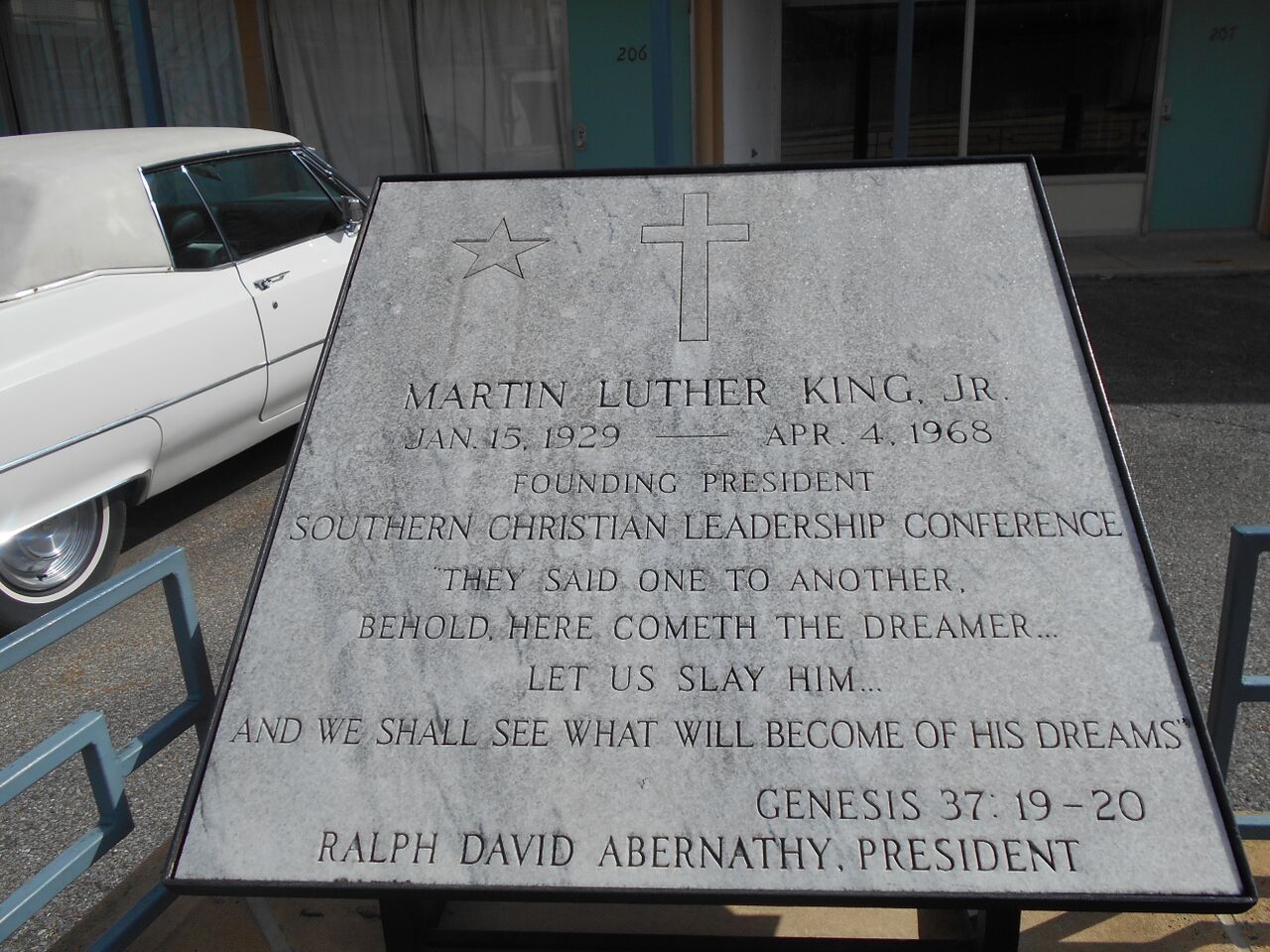
One of the things I like about theology, or learning about the history of the Christian faith is that there is always someone who has been there already. Whatever question of faith you are struggling with, whatever situation you are trying to find God in, whatever question you have about what difference following Jesus makes or should be making to your life, there is always someone who has asked this before. Our history is full of people who tried to work out what it meant to follow Christ in their own particular place and time and it is amazing how so many of their challenges are relevant today.
Martin Luther King has been one of my heroes for a long time. He was a flawed disciple whose sense of what it meant to follow Jesus changed the world. It transformed the lives of hundreds of thousands of people and of course, it cost him his own life.
It would be easy to assume as we look back, that it was obvious that King had to fight against racial segregation; that racial segregation in America clearly needed challenging. But there were plenty of Christians at the time, black and white who didnt see things in quite the same way. Some of the white Christians thought it was right to maintain white privilege. Some of the white leaders agreed things should change but gradually, without rocking the boat. Some of them campaigned alongside black people. Some black Christians thought that God had made things as they were and it was the duty of the Christian to accept the situation you found yourself in. But MLK believed passionately that God had made all people to flourish and not to be bound by race or status.

He also believed that he was called to help people see a vision of a different way of living. MLKs own reading of the bible, his study of theology and his experience of God all led to his conviction that until we are all flourishing, none of us truly are. His passion for justice and equality and desire for people to be valued beyond labels of race went against the prevalent culture of the day. Those who agreed with him that things must change often wanted to use more direct, violent methods of change. But MLK resisted violence even in the face of terrifying and sometimes fatal aggression used against black campaigners. For King, the kingdom wouldnt be built by violent means, but could only be established through the values of the kingdom: love, justice, joy and peace.
King was called to a ministry of service and constantly challenged others to love their neighbour and to put others needs first. The first question which the priest and the Levite asked was: 'If I stop to help this man, what will happen to me?' But... the good Samaritan reversed the question: 'If I do not stop to help this man, what will happen to him?' Following Jesus was not a private matter for MLK, it was about all of the people around him, those who regarded themselves as friends and those who made themselves enemies. Lifes most persistent and urgent question, he said, is what are you doing for others?.
October is Black History Month and we are invited to recall and learn some of the stories that were never told. We are invited to remember that the world has been shaped by all sorts of people whose part in our past it is easy to ignore or overlook. MLK gave a voice to many who were not being heard as they called for an end to injustice, as they cried out to be treated as human beings. He worked out that following Jesus couldnt mean leaving things as they were, and couldnt mean trying to fix it with more and more wrongs and inhumanities. As we follow Christ in the footsteps of Martin Luther King, what is it we are called to speak out about? And what might we learn from him about how to do it?
A downloadable leaflet based on this reflection is available here.
Dr Lindsey Hall
Director of Vocations
